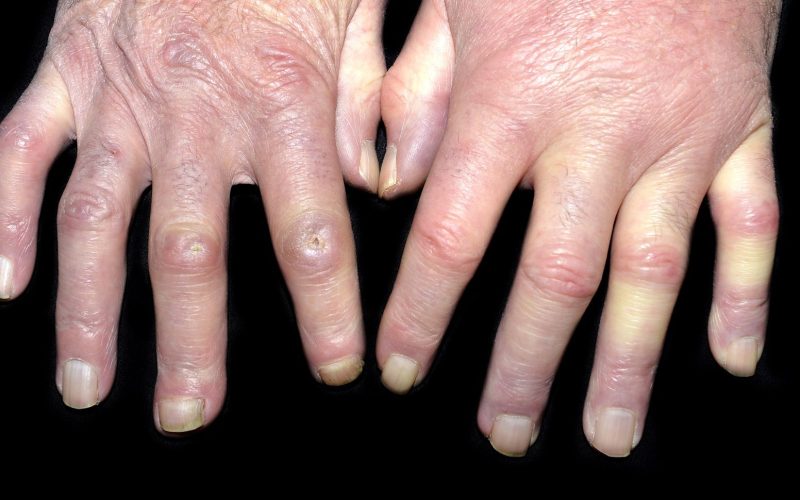It is evident that there is deregulation of monocytes in patients with systemic sclerosis (SSc). This is strongly related to the severity of the clinical picture and monocyte dysregulation is therefore most likely directly involved in the pathogenesis of SSc. How to prevent monocyte deregulation may help cure or prevent SSc should be subject of future research, concludes Maarten van der Kroef in his PhD research at UMC Utrecht.
Systemic sclerosis (SSc) is an autoimmune disease in which the production of autoantibodies and vascular damage precede the development of fibrosis in the skin and internal organs such as the lungs. It is unknown what underlies the development of SSc, but the over-activation of the immune system is often seen as an important factor. In addition to the production of autoantibodies, the infiltration of immune cells into the affected organs is an important indication of the role of the immune system in this disease. Monocytes are circulating immune cells, constituting 5-10 percent of the leukocytes in the blood. Many monocytes and cells derived from the monocyte are detected in the affected tissues of SSc patients. Therefore, Maarten van der Kroef (Center for Translational Immunology, UMC Utrecht) investigated in his PhD research the role of monocyte dysregulation in the pathogenesis of SSc.
In his thesis, Maarten van der Kroef describes the intrinsic differences in gene expression and its regulation in monocytes from SSc patients compared to cells of healthy people. He discovered that changes in gene expression levels are present at an early stage of the disease and that the altered activation of enzymes that regulate the accessibility of the DNA may explain some of these changes. In addition, he saw that the number of monocytes in the circulation of SSc patients is related to the severity of the disease.
Finally, van der Kroef described how monocytes are activated by proteins that are elevated in the blood and tissue of SSc patients and analyzed how this activation can contribute to the development of fibrosis. According to Maarten van der Kroef, future research should determine whether the prevention of monocyte infiltration and their subsequent activation ameliorates this disease.
Systemic sclerosis (SSc) or scleroderma is a rare autoimmune disease with heterogeneous symptoms and characterized by immune changes, vascular abnormalities, fibrosis and hypoxia. SSc is poorly understood with no available effective cure and a largely unknown pathophysiology. The disease is usually diagnosed between ages 30 and 60 years, with an incidence ranging from 7-44 cases per 100.000 per year and a female preponderance.
Maarten van der Kroef (1988, Haarlem) defended his PhD thesis on October 27, 2020 at Utrecht University. The title of his thesis was “Exploring the role of monocyte dysregulation in the pathogenesis of systemic sclerosis”. Supervisor was prof. dr. Timothy Radstake and co-supervisors were dr. Marzia Rossato and dr. Chiara Angiolilli (all Center for Translational Immunology, UMC Utrecht). Maarten van der Kroef works as of August 2020 as a scientist at Galapagos where he aims to identify novel clinical targets for the treatment of fibrosis.
